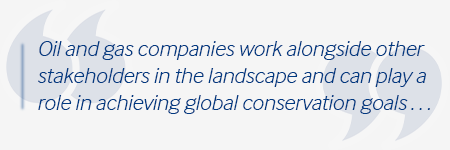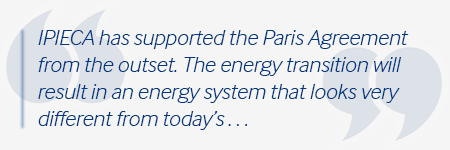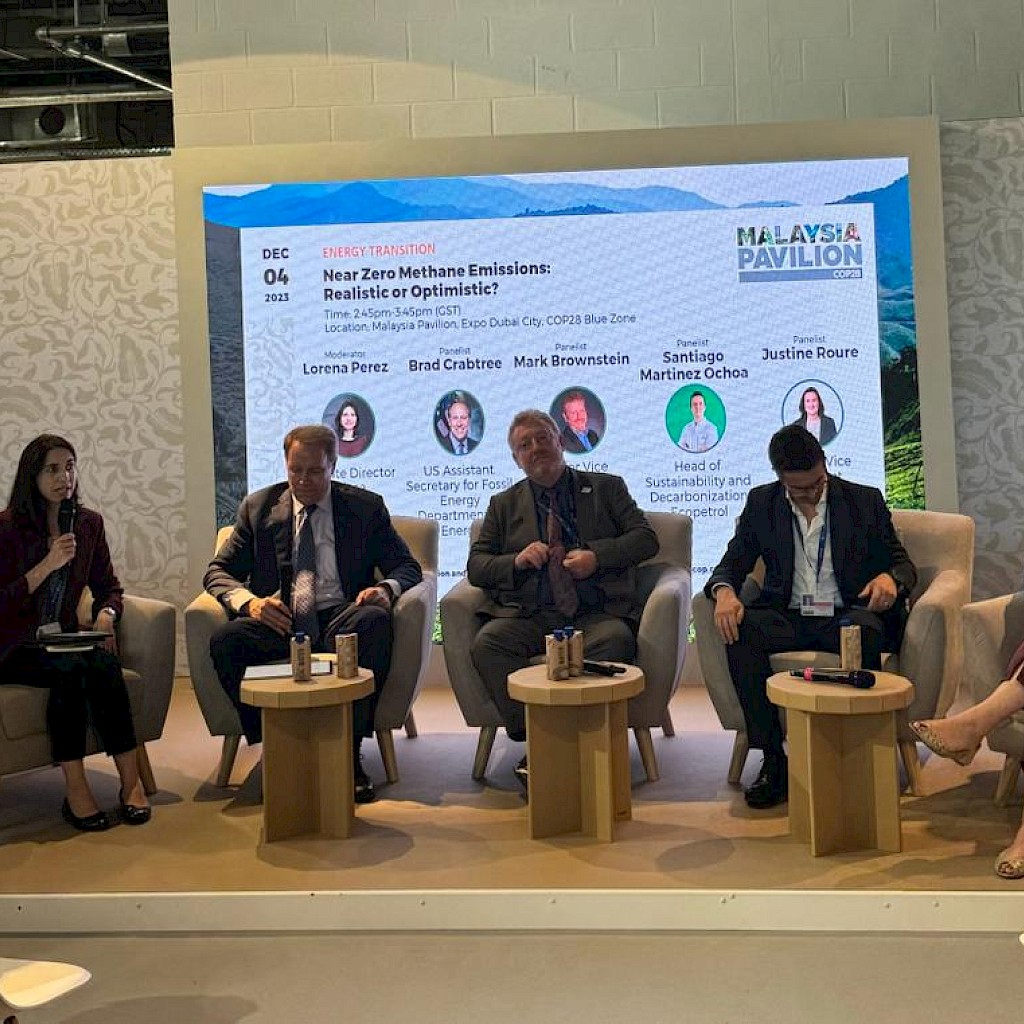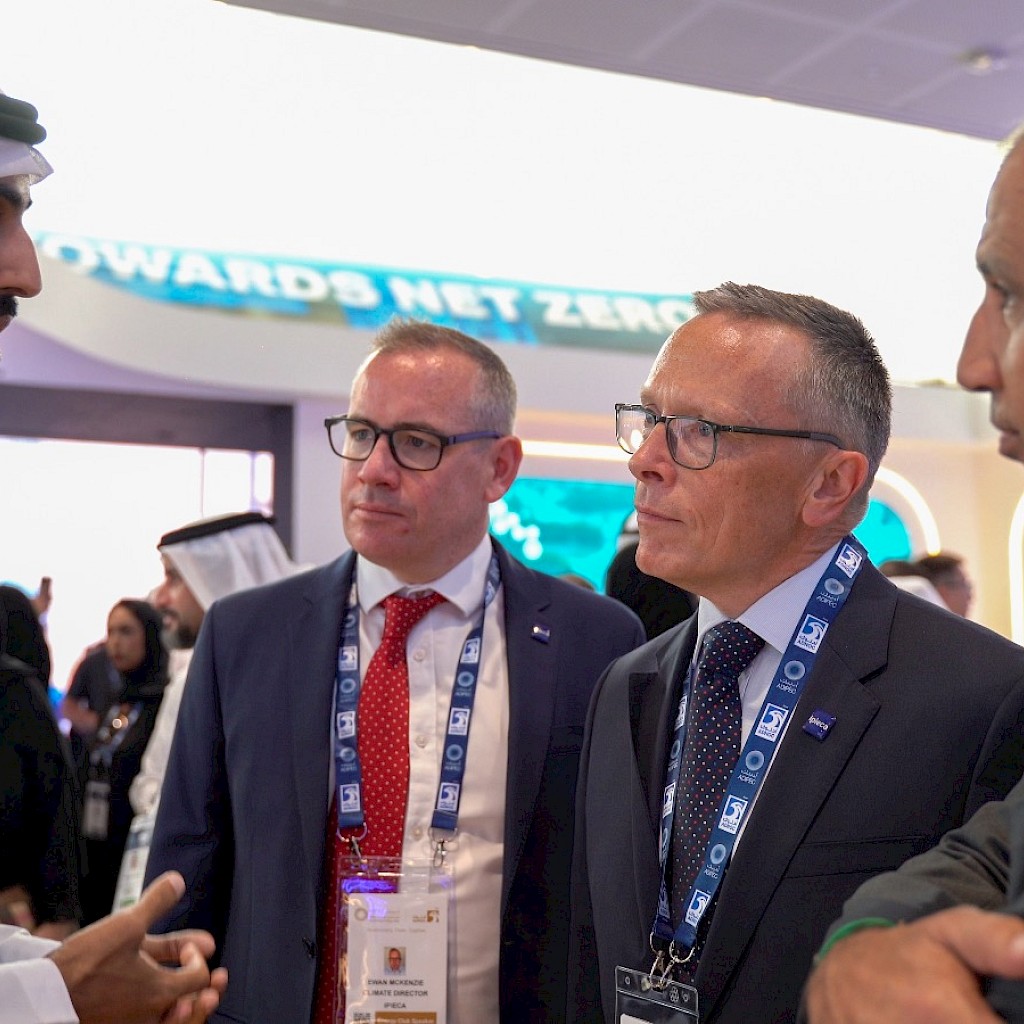It's easily done to start to look ahead to the upcoming year by saying it will be a big one - more in hope that anticipation. However, 2020 survives cold eyed scrutiny due to the two major environmental COPs (Conferences of the Parties - all major agreements have their own COP) hosted by the UN.
Supporting COP 15 on biodiversity
 The first, COP 15 of the Convention on Biological Diversity (CBD) will take place in October in Kunming, China, under the theme "Ecological Civilization: Building a Shared Future for All Life on Earth". The aim of the conference is for nations to adopt a new global policy framework on biodiversity and to address with urgency, mainstreaming biodiversity into economic sectors and society. This is an area Ipieca has been working on for many years, with the aim to share knowledge, enable and promote good practice.
The first, COP 15 of the Convention on Biological Diversity (CBD) will take place in October in Kunming, China, under the theme "Ecological Civilization: Building a Shared Future for All Life on Earth". The aim of the conference is for nations to adopt a new global policy framework on biodiversity and to address with urgency, mainstreaming biodiversity into economic sectors and society. This is an area Ipieca has been working on for many years, with the aim to share knowledge, enable and promote good practice.
Oil and gas companies work alongside other stakeholders in the landscape (regulators, governments, communities, NGOs, etc.) and can play a role in achieving global conservation goals.
Recently our focus has been on the mitigation hierarchy, developed in collaboration with the Cross Sector Biodiversity Initiative, which includes the mining and metals sector (International Council on Mining and Metals) and the Equator Principles banks. Ipieca will be attending COP 15, not to lobby (we don't do that), but to provide examples of good practice and to support the aims of the conference.
Raising ambitions at COP 26
Of course there is a strong relationship between biodiversity and climate change and there are interdependences between the events taking place in China and the other headline COP on Climate Change, COP 26 of the UN Framework Convention on Climate Change (UNFCCC), taking place in Scotland in November.
 Under the Paris Agreement, concluded at COP 21, countries submitted Nationally Determined Contributions (NDCs) to show how they plan to contribute to the overall aim to limit global temperature rise to well below 2oC and to achieve a global balance between emissions and absorption (net-zero emissions) in the second half of the century.
Under the Paris Agreement, concluded at COP 21, countries submitted Nationally Determined Contributions (NDCs) to show how they plan to contribute to the overall aim to limit global temperature rise to well below 2oC and to achieve a global balance between emissions and absorption (net-zero emissions) in the second half of the century.
The Agreement requires countries to increase the level of ambition of their NDCs and submit them to COP 26. This will be an important milestone as the current NDCs, although a step in the right direction, are estimated to leave the rise in temperatures over 3.5oC, if and this is a big if, they are delivered. COP 26 will be a stock take and a call to arms to increase ambition and delivery.
Ipieca has supported the Paris Agreement from the outset. The energy transition will result in an energy system that looks very different from today's. Every country's starting point, trajectory and destination on their journeys to net-zero will be different and the role played by oil, gas and other sources of energy and mobility produced by Ipieca members, although important, will vary geographically and over time. This is a challenge requiring a broad range of energy solutions and the contribution of all sectors of society.
The dual challenge: meeting the world's energy needs while reducing emissions
It's not all about energy supply though. The picture is more complex and includes the demand side and the needs that drive that demand such as energy security, access to electricity and all elements encompassed by sustainable development and consumer society. That said, the challenge of reducing global greenhouse gas emissions must be addressed, recognising that while emissions should fall in the developed world, some individual country contributions may rise in the short to medium term, hopefully with an overall long term decline, leading to the achievement of the aims of the Paris Agreement.
The world's population is growing. So are expectations for a better, healthier, more prosperous way of life among more people than ever before.
Ipieca's role in the energy transition
 From an Ipieca perspective, 2020 will be an important year as we develop our new strategy. As well as taking the views of our 65 member companies and associations into account, we seek stakeholder input through surveys and dialogue. Although the work is just beginning, it is clear the energy transition, what it means for our members and what Ipieca's role in it should be, will feature strongly in our thinking. The two COPs provide a glimpse of the external context.
From an Ipieca perspective, 2020 will be an important year as we develop our new strategy. As well as taking the views of our 65 member companies and associations into account, we seek stakeholder input through surveys and dialogue. Although the work is just beginning, it is clear the energy transition, what it means for our members and what Ipieca's role in it should be, will feature strongly in our thinking. The two COPs provide a glimpse of the external context.
The oil and gas industry continues to increase efforts to manage their own GHG emissions. They are also adapting their portfolios to enable energy consumers to reduce theirs through access to gas and also alternative energy sources such as renewables. Ipieca has a strong track record in supporting its members to continuously improve the environmental and social performance of their operations and products, through cross industry collaboration, partnership with stakeholders and constructive dialogue at UN events. A key strategic question will be whether and how we should broaden our emphasis in the light of the energy transition, the challenge of addressing climate change and achieving sustainable development. Whatever we conclude from our strategic review, our core role of promoting environmental and social good practice will be central. 2020 will be an interesting year.
Further reading:
On CBD COP 15 - www.cbd.int
On UNFCCC COP 26 - www.unfccc.int
On Ipieca - www.ipieca.org
About Brian:

Over the course of 23 years, his career included assignments in London, Copenhagen, Budapest, Athens and Johannesburg, and business experience in over 60 countries. During his time with BP he has had a varied career of technical, commercial, financial and leadership roles across the downstream value chain including crude and products trading, marine fuels, lubricants and alternative energy.




